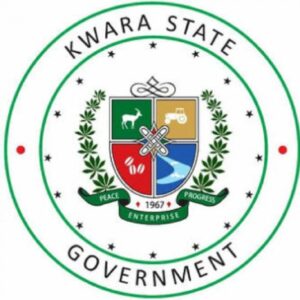
FG begins implementation of five year NSOANP in national hospital, others
The Federal Government is set to begin the implementation of the National Surgical, Obstetrics, Anesthesia and Nursing Plan (NSOANP) 2019-2023.
Dr. Obiajulu Ugbo, the Head, Coordinating Unit, Department of Hospital Services, Ministry of Health, disclosed this on Thursday while presenting the NSOANP working document to Dr Aisha Umar, the acting Chief Medical Director (CMD),Ugbo said that the plan was developed in line with a World Health Assembly (WHA) Resolution of 2015 that states that surgical, obstetric, anesthesia and nursing care are important components of Universal Health Coverage (UHC).
According to her, this means that UHC is complete when surgeries are fully integrated into healthcare services.
She added that the five year plan which was inaugurated in May 2019 could not kick off due to the COVID-19 pandemic restrictions.
The coordinating unit head said the aim of the plan is to strengthen existing infrastructure and equipment, achieve access to surgical care of both adults and children by the year 2023 and increase middle level workforce.
She said, “This policy aims to increase the density of surgeons, anesthetics, obstetricians and plan training of the middle level workforce.
“Also a very key point is that the policy aims to achieve financial risk protection by health insurance for 50 per cent of the population by 2023.
“This policy also aims to strengthen healthcare governance and leadership.
“The plan relies on realistic baseline findings, surgical disease burden, surgical situation analysis and reveals gaps and challenges with information and data for planning.”
She said it was expected that the hospital would embrace and support the plan by designating a desk officer for continuous liaison with the ministry and also come up with a budget for the plan in the next budget cycle.
“We are just disseminating the plan at this stage and it is at the level of the implementation it will be reviewed and then we can give you our success stories,” Ugbo said.
She added that the policy was being disseminated to all Federal tertiary hospitals and theState Ministries of health which are expected to trickle it down to the primary healthcare level.
Responding, the acting CMD applauded the Federal Government for coming up with such plan.
She said that the time of implementation should be extended to give room for time lost due to the COVID-19 pandemic.
On its implementation, she said that the hospital would get a desk officer to work with the team of nurses and surgeons and document what they do and report to the Ministry.
She assured that the hospital would do its best to implement the plan, and expressed the hope that financing would be provided by health insurance for Nigerians who would be taken to the hospital but cannot afford its services.
Umar said that migration of medical personnel was a huge problem and that something should be done to retain available manpower.
She added that, “We know that the healthcare resource in Africa is moving because of migration. I hope that the committee will note this and do something to retain the manpower that we have struggled to train in Nigeria.
“Recently, the national hospital management presented to the board this problem graphically, where we lost 34 consultants in one year.
“It is a big problem, we know the impact and sometimes we try to let people know that new recruits cannot replace experienced clinicians.
“A doctor that worked for 22 years cannot be replaced by someone that graduated yesterday, it is not a simple matter of employment.
“We will do what we can to drive the message that migration is a big problem and it is affecting healthcare delivery in our institutions.”



